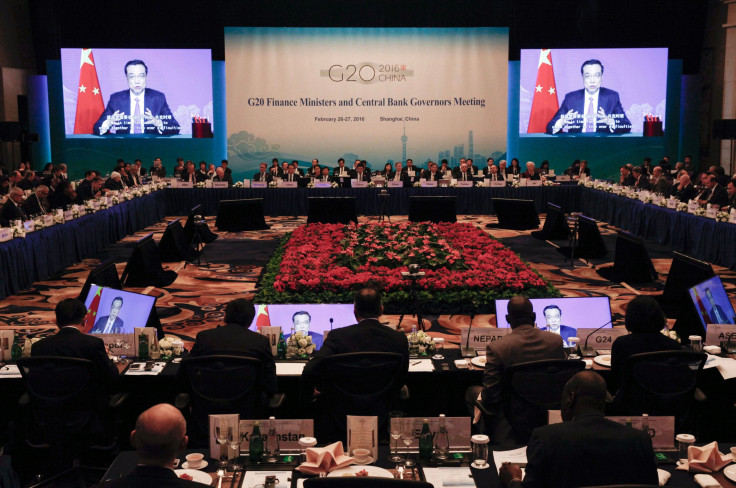G20 Calls For Use Of ‘All Policy Tools’ To Boost Economy, Says Structural Reforms Needed Too

SHANGHAI — The finance ministers and central bank heads of the world's richest nations Saturday called for urgent action to tackle the slowdown in global growth, saying countries should use "all policy tools" rather than sticking simply to monetary easing. But analysts said the joint communiqué issued after the two day G-20 meeting in Shanghai also highlighted the divergent views of various nations on how to tackle the problem.
Ministers agreed that "while monetary policies such as low interest rates will continue to support economic activity and ensure price stability ... monetary policy alone cannot lead to balanced growth."
But the moves of countries such as Japan to introduce negative interest rates have been criticized by other nations such as Germany, and the announcement also called for deeper structural economic reforms, which Germany’s finance minister Wolfgang Schaeuble said should be the top priority.
However, the communiqué also called for fiscal stimulus measures — including tax cuts and infrastructure spending — which are backed by the International Monetary Fund, but which Schaeuble said Friday were out of date and brought with them the risk of debt-fueled economic bubbles.
While it said government borrowing should be controlled, stressing that it was important to ensure that debt was a “sustainable” proportion of GDP, and emphasized the need for high-quality investment, the announcement added that tax policy and spending should also be "as growth-friendly as possible," Reuters reported.
The G-20 officials noted that downside risks and other vulnerabilities “have risen” recently, and warned of the impact of the current refugee crisis and “the shock of a potential U.K. exit from the European Union,” as Britain debates the issue ahead of a planned referendum.
Officials also pledged not to engage in competitive currency devaluations to boost exports, and said they would "consult closely" with each other any moves that might affect currency markets. China’s central bank governor on Friday had sought to reassure markets that Beijing did not see any need for further sustained devaluation of the yuan, amid U.S. concerns about China's intentions, after Beijing devalued the currency last August, leading it to lose some five percent of its value against the dollar over recent months.
However, despite the challenges it highlighted, the communiqué pointed to a “global recovery” that it said had continued, if unevenly, and suggested that markets had sometimes overreacted to problems such as plunging stock prices on China's always volatile markets — which some analysts say rarely reflect the fundamentals of China’s economy.
“We ... judge that the magnitude of recent market volatility has not reflected the underlying fundamentals of the global economy,” the announcement said.
However, officials, including China’s Finance Minister Lou Jiwei and Bank of England governor Mark Carney, also warned against complacency and emphasized the need for greater structural reform. The Organization for Economic Co-operation and Development Friday lamented that the pace of such deep rooted reform had slowed over the past 4-5 years, as countries sought quick fixes to slowing growth. And Britain's Chancellor of the Exchequer George Osborne also said that while the U.K. economy was “weathering" current challenges "better than most,” it still faced potential risks in the near future if the global economic chill, which has seen China's growth slump to a 25-year low, continued.
© Copyright IBTimes 2024. All rights reserved.





















